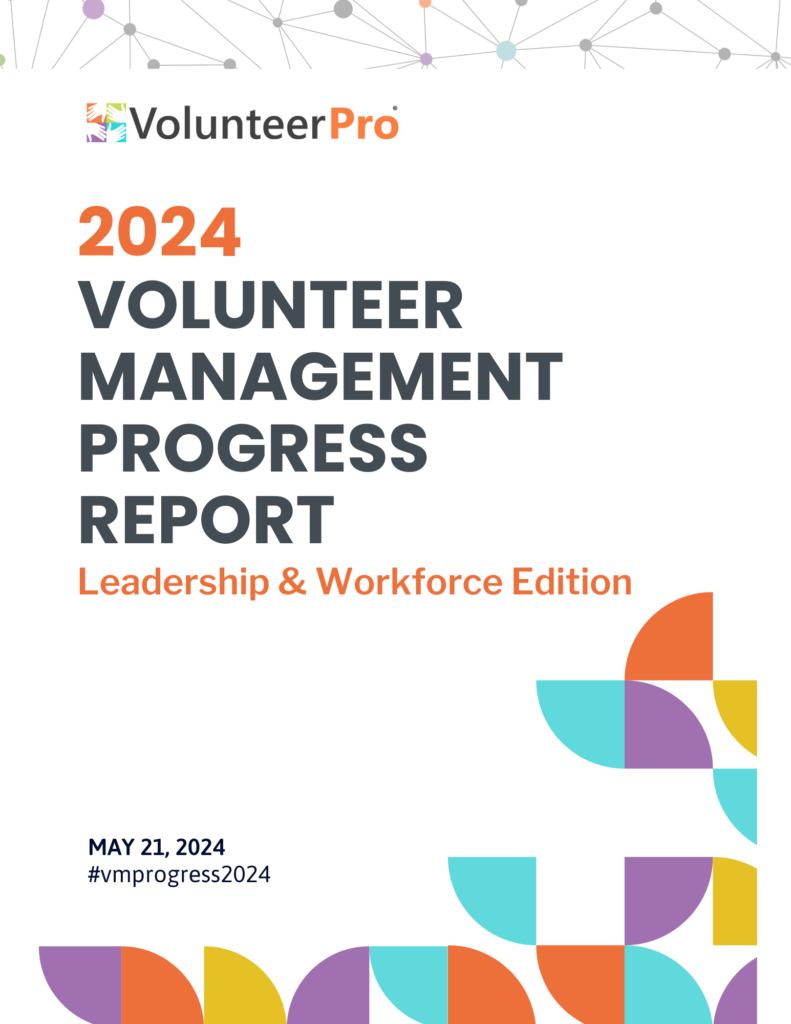
Our Top Volunteer Management Best Practice for the Year Ahead
With 2022 (and maybe an end to COVID) just around the corner, which volunteer management best practices will you focus on?
While it feels like there’s no end in sight to the current pandemic, there will, indeed, come an end to the endless lockdowns and shifting sands of health and safety guidelines.
If you haven’t tried it yet, now’s a great time to dream about the future – how will you create an exceptional experience for your volunteers as they return to service?
What is it they will be looking for?
What will be the informational and emotional needs of volunteers that you must anticipate and build into your strategy?
Even if you’re unsure what the future will bring, it’s OK to dream a little.
And it’s time to start thinking ahead.
And you may be resistant to doing so.
If you’re like most nonprofit leaders, your schedule is packed with tasks and competing priorities. You have limited time. So, it makes sense to focus your attention on what will get you the most traction in the here and now.
What’s more, you may – like many of us – feel the general malaise and fatigue of COVID and the many pivots you’ve had to make over the past 18 months.
Completely understandable.
But what if planning could actually leave you re-energized and inspired about the future?
Let’s see if we can do that, shall we?
First Things First … Who’s Ultimately Responsible – Volunteers or Organizations?
When you think about how you might bring about a big community impact with volunteers, what do you consider? Does it start with exactly what volunteers can bring to the table? Or, is it about the volunteer management practices you plan to put in place?
Often, organizations start with the volunteers, can even see them as a barrier to success. They may place the blame on volunteers for a lack of results. Volunteers don’t follow through. Volunteers aren’t committed. Volunteers don’t have the requisite skills for success.
But is this the right place to start a conversation about organizational progress and results?
Organizations might better ask — Why don’t our volunteers don’t follow through? Why aren’t volunteers committed more long term? Why aren’t volunteers prepared with the tools and skills to the do the job?
Should an organization’s inability to get results be chalked up as the lack of personal character or resources on the part of volunteers, or does the organization hold the ultimate responsibility?
The Link Between Volunteer Management & Impact
I would argue that in order to get results, nonprofits need solid management practices and frameworks first and foremost. Time and time again, regardless of the makeup of a volunteer team, research has shown that better management strategies lead to higher satisfaction, which leads to better volunteer retention rates, which results in more in-depth volunteer engagement, and greater community impact.
The Volunteer Management – Volunteer Impact Continuum

Still, many nonprofits don’t invest the time, energy, and resources necessary to understand and implement today’s volunteer management best practices. When push comes to shove, other activities take priority and volunteers get the blame for poor performance.
And yet, rather than a barrier to success, volunteers are a proven positive asset for nonprofits. Volunteerism has been shown to boost organizational and community sustainability. What’s more, research shows direct connections between volunteering and philanthropy.
For these reasons, we believe that if an organization is to be the beneficiary of volunteer time and talent, then the ultimate responsibility is on the organization to create the kind of environment where volunteers can flourish.
But, where should you focus first? I’ve some ideas, based on fresh and innovative scholarly research studies.
The #1 Volunteer Management Best Practice
Effective management isn’t only about taking responsibility. It’s also about harnessing innovation and focusing on strategies with the most promise.
Below is the single most important volunteer management best practice you should consider implementing for the new year (based on current research about what works). I also include suggested management actions and links to the source documents, in the event you wish to dive in deeper.
The #1 Volunteer Management Best Practice =
Build Relationships & Make Expectations Transparent
There is a growing body of research that points to the interpersonal nature of volunteer engagement and the underpinnings of mutual commitments of volunteers to organizations.
Scholars of volunteer management have borrowed the concept of psychological contracts that drive the employee-company experience and adopted this concept to the volunteer context.
Psychological Contracts: An Overview
A psychological contract (PC) represents the mutual beliefs, perceptions, and informal obligations between an employer and an employee or volunteer and the organization they serve. It sets the dynamic for the relationship and is different from a formal written contract of employment which only identifies mutual duties and responsibilities.
Psychological contracts include both implicit “unwritten” and explicit “clearly expressed” promises. For example, an explicit promise might be that the nonprofit will provide five hours of expert training to volunteers. An implicit promise by a volunteer might be that they will be loyal to the organization.
Examples of expectations volunteers may have of organizations and employees might include – fair treatment, meaningful work, responsibility, challenges, healthy environment, resources to do the job, skill development.
Examples of expectations organizations and employees might have of volunteers may include – reliability, enthusiasm, commitment, good relations, empathy, common sense, local knowledge, general and specific experience.
The Psychological Contract Breach
A psychological contract is based on what the individual and the organization each bring to the relationship, and it rests on the notion of reciprocity.
The catch is that most often these go unexpressed, and what results when expectations aren’t met is called a psychological “breach. When this happens, either side may withdraw and become less supportive of collective goals.
Psychological Contract (PC) Breach

Often with PC breaches, a self-perpetuating vicious cycle is created:
Staff members may be less willing to work with volunteers who they perceive to have breached their psychological contract.
Therefore, the volunteer will experience lower levels of organizational support as it is withdrawn by the staff members. This, in turn, reduces volunteer participation, which leads to even more perceived breaches.
Psychological Contracts From the First Touch
Psychological contracts aren’t only for long-term volunteers. In fact, recent research has shown that volunteers begin to develop a psychological contract with an organization from the very first stages of recruitment.
What’s more, even with formal volunteer orientation programs, much of what volunteers learn about the requirements of their roles, research shows, are from other volunteers, usually in an informal way with no underlying strategy.
In addition, the following appear to have an impact:
-
- The time it takes to complete application & screening
- Incomplete description of the role
- Incomplete description of benefits
- The disconnect between what was “promised” & reality
- Lack of consistent communication
What’s more, when volunteers have prior experiences with volunteering, they are more likely to continue volunteering elsewhere. They are also more likely to seek experiences that are consistent with their motives for volunteering.
A prior positive experience will also contribute to the formation of expectations about the support they require from the current organization. In contrast, a prior negative experience leads volunteers to proactively seek out organizations that will provide them with an alternate, more positive volunteer experience.
Volunteer Management Best Practices & Implications
The link between reciprocity and specific volunteer management practices has gained increasing focus in psychological contract studies in the voluntary sector.
Many volunteer motivations fit this relational contract concept because they are linked to social identity and emotions like group belonging and meaningful contribution to the world.
There are several additional findings that offer clear takeaways for volunteer organizations:
Research has shown that administrative workload and division between local volunteers and central staff causes a psychological contract breach.
Second, although volunteers feel obligated to advance the organization’s mission, they also feel entitled to freely decide when, where, and how they dedicate their time to the organization.
These researchers found that transactional management practices of keeping formal records and not paying volunteers out-of-pocket expenses are negatively associated with volunteer recruitment and retention.
Alternatively, publicly recognizing volunteers through a volunteer newsletter supports volunteers’ relational expectations and is positively linked to retaining a sufficient volunteer workforce.
These findings suggest that the relational expectations of volunteers are an important aspect of the psychological contract. This should be used by organizations as a framework for developing management practices that build bridges between employees and volunteers. https://volpro.net/webinar-lead-hybrid-volunteer-teams
What’s Your Volunteer Management Best Practice Priority?
Where do you plan to invest time and energy in boosting volunteer engagement?
How can you better surface the expectations of employees and volunteers and ensure they are met or managed?
How can you create continuous feedback loops and foster a spirit of innovation?








Leave A Comment